Much has been written recently about learning loss and the COVID-19 crisis. With the country locked down and schools shut, some children are bound to have learned less over this period than others.
It has been noted that learning loss is likely to particularly affect the life chances of young people with high-stakes examinations next year, such as those entering Year 11 in the autumn.
All other things being equal, those who are motivated, driven to succeed and ambitious are likely to have continued to work hard in their studies even while their school was closed. On the other hand, those pupils who are less motivated and have no clear post-school targets or plans, may well have taken their foot off the pedal.
But how much does being driven and ambitious during Year 11 really matter for GCSE outcomes, even in normal times?
Quite a lot, it turns out.
Unique data
New research of mine (along with my colleagues Nikki Shure and Gill Wyness), published today, looks at a nationally representative cohort of Year 11s who took their GCSEs in 2016, and considers their ‘drive’ (e.g. how they responded to questions such as ‘I want top grades in most or all of my courses’ and ‘I want to be the best, whatever I do’) and their ambition (measured by whether they want to go to university and, if so, which one they want to attend). They answered these questions in November/December of Year 11 – around six months before taking their GCSEs.
From this, we can compare GCSE outcomes for Year 11 pupils who score highest on these measures (e.g. who say they want to be the best at what they do and plan to apply to an Oxbridge university) to their school peers who lack any such motivation. Importantly, we can also account for a wide array of background differences between such teenagers, such as their levels of prior achievement, socio-economic background and the school that they attend.
The results show that drive and ambition really do matter during Year 11. Ambitious and driven young people achieve – on average – around half a grade higher per subject in their GCSEs than comparable Year 11s, with the same level of prior achievement, who are not determined to succeed.
Implications
What does this finding imply?
First, even during ‘normal’ times, motivation and determination in Year 11 matters a lot. Clearly, there is only so much that schools, teachers and parents can do. At the end of the day, the buck stops with young people themselves (though it’s also true that hard work and motivation don’t always lead to success).
Second, in the current climate, this provides one clear reason why educational inequalities in GCSE grades may widen next year. During this last term – with schools not open to most children – the onus has been placed upon young people to continue putting in the hours on their school work. The driven and the ambitious pupils will have done this. Those lacking motivation and direction will not have.
It would therefore be no surprise at all if the gap in GCSE outcomes between such teenagers increases dramatically next academic year.
You can read the full research here.
Want to stay up-to-date with the latest research from FFT Education Datalab? Sign up to Datalab’s mailing list to get notifications about new blogposts, or to receive the team’s half-termly newsletter.

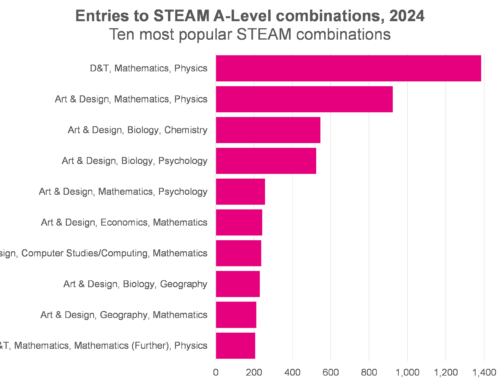
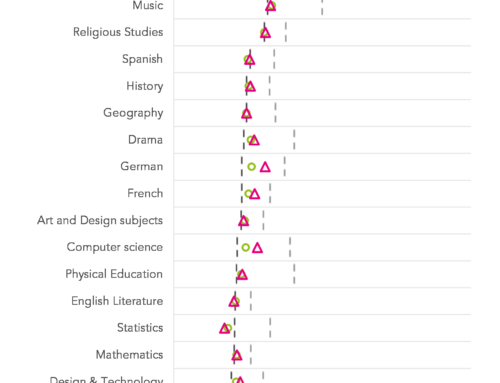
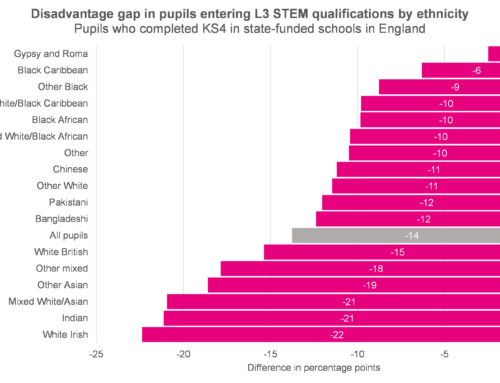
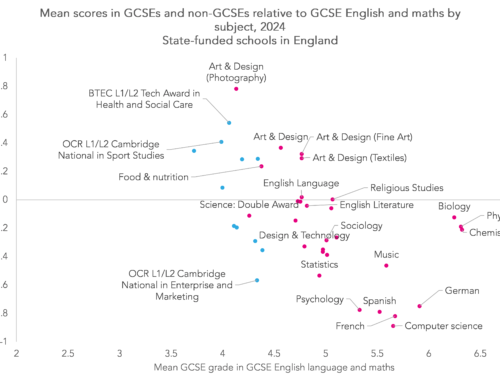
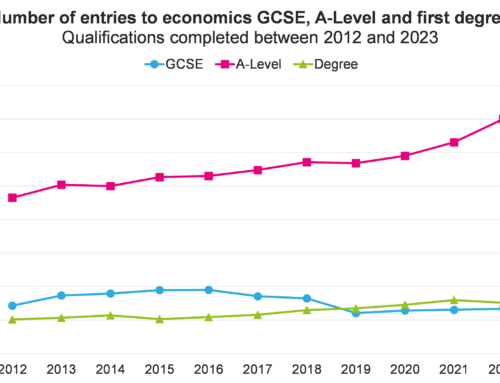
Flawed straight away by ‘ambition (measured by whether they want to go to university and, if so, which one they want to attend).’ So a young person who is ambitious to succeed in their chosen career via a different pathway, would not count as ‘ambitious’. There are different ways to reach a successful destination (whatever definition that may have!). You could also argue that you do not have to be ambitious to get into university anymore.
I would also say that the comment ‘All other things being equal’, doesn’t do enough to qualify the assumption that of those ‘young people to continue putting in the hours on their school work. The driven and the ambitious pupils will have done this. Those lacking motivation and direction will not have.’ There will have been a huge number of motivated and ambitious young people who have been unable to put the hours into their school work for all sorts of reasons.
This piece does not sit comfortably with me.